Black Market Deals in Burma
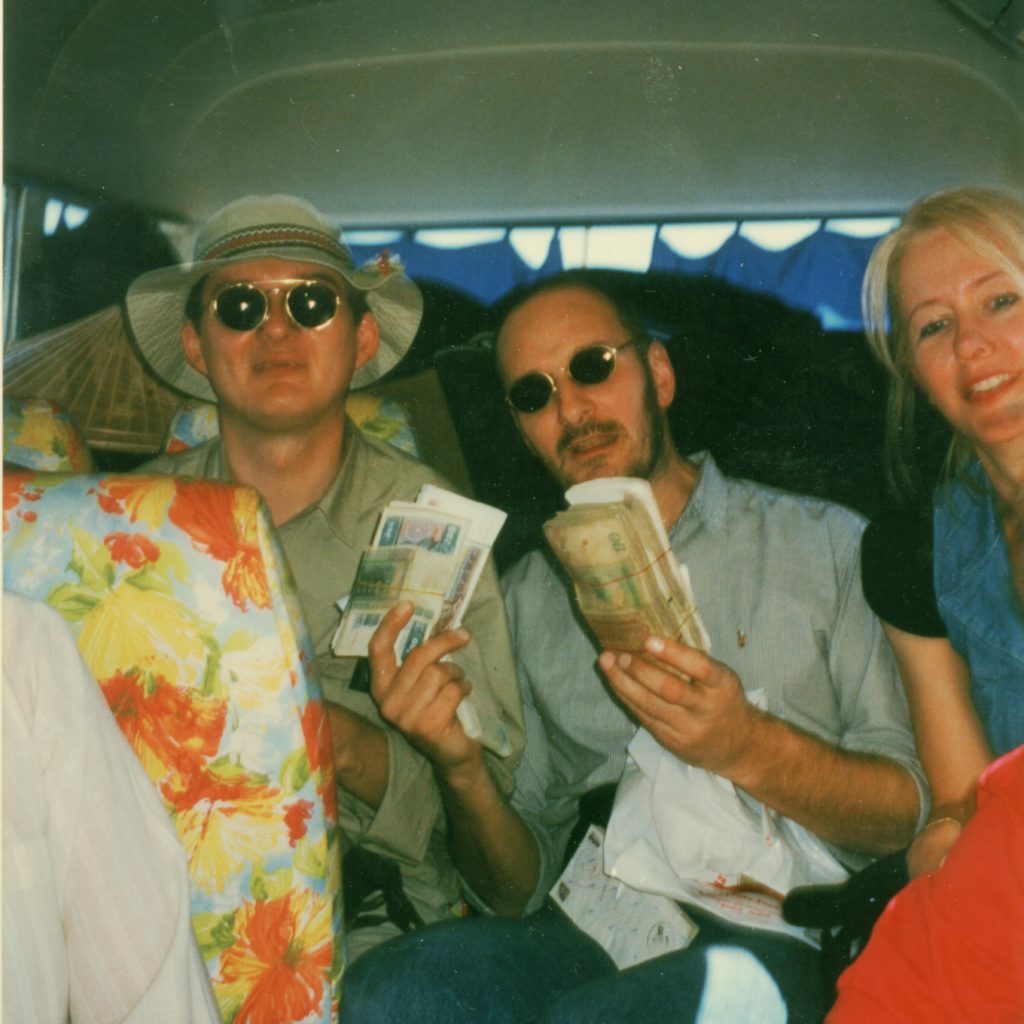
During socialist times (1962-1988), most of the businesses in Burma were ‘nationalized’, i.e., their owners were expropriated. Even small retail shops were affected. The nationalization resulted in an economic decline genuinely worth seeing. A black market of incredible proportions arose. Even cinema tickets were available on the black market. A habit that existed long after the socialist system was abolished. Maybe it’s still around today … Everything was scarce, and especially city dwellers had to queue even for staple items. Hard times! The national currency (Kyat), whose official rate was around 6 to the dollar, lost its value constantly. When I was in Myanmar for the first time in 1977, the black market rate hovered around 20 kyat to the dollar. When I was working as a tour leader, my colleagues and I were buying Kyat at the black market rate and selling them to our clients with a hefty profit. Those were the days …
Diplomats and foreigners were better off: The ‘Diplomatic Store’ on Sule Pagoda Rd. next to the fire station offered many goods that were unavailable outside. Even high-octane gasoline could be bought there, not the watered-down variety available in the black market. Of course, prices at the Dip Store were high, but as those goods were in great demand, people would happily pay for them. Unscrupulous foreigners would sell the goods they had bought there for an inflated price to black market dealers waiting outside. And they would add their commission and sell it to the end user. Or a middleman. See below! However, one should not overestimate the range of items available there. Every supermarket in Bangkok was better stocked than the Dipstore. So, my friends from the German embassy traveled to Bangkok frequently to buy urgently needed goods.
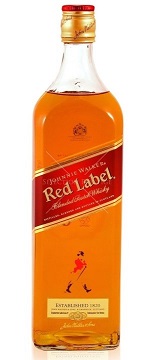
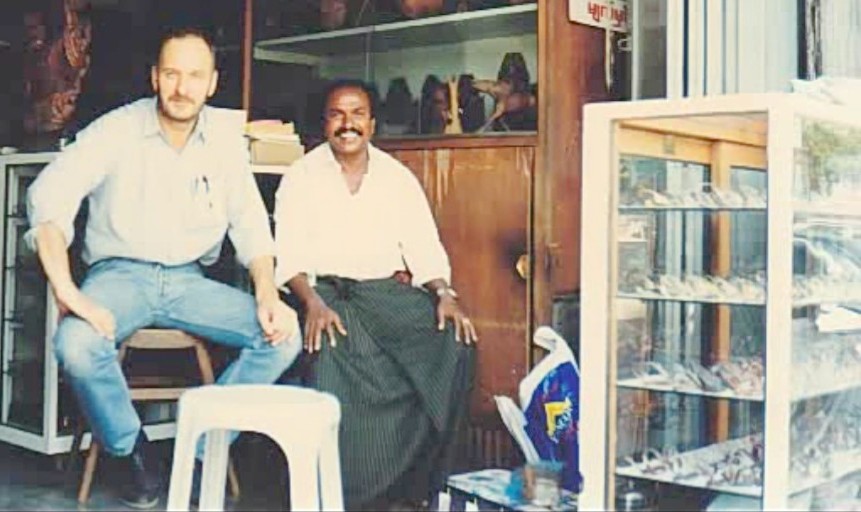

In the 70s and 80s, every traveler played the ‘Johnny Walker game’: in Bangkok, he’d buy a bottle of Johnny Walker Red Label and a carton of 555 cigarettes and sell it on the black market for thrice the price. As the stay in Burma was restricted to one week, those days it was enough to pay for one’s expenses during the trip. Except for hotels and train or plane tickets, of course, which had to be paid for in hard currency. But that was kid’s stuff, only for beginners! After coming to Burma for the first time, I quickly started a business. I bought all kinds of handicrafts
(especially marionettes) and brought them back to Berlin, where I sold them for a very good price. Of course, I couldn’t pay the official rate because that would have ruined me. So, I changed money at the black market, and my goods were reasonably priced. The black market was not without dangers, however. First, there were many crooks who’d run away with your money or give you banknotes that had been out of circulation for a long time. And then there were government spies who tried to trap you. But that was no problem as I found a reliable money changer, my Tamil friend Victor.
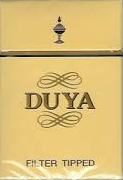
Advanced black marketeers like myself used the Dip Store. It was an elegant, semi-legal way to get local currency for a reasonable rate. Of course, I could have changed any amount I liked on the black market, but then I’d run into trouble at the airport. The customs officers would ask me how I could buy souvenirs worth 1,000 US dollars while changing only 100 dollars legally. Not to mention that I had to spend money on food and drinks during my stay. In the worst case, they’d confiscate the goods and sell them back to the dealer. The Dip Store, on the other hand, was an officially recognized way to acquire local currency cheaply. There, you could buy goods in almost unlimited quantities – of course, against legally exchanged currency – which you then sold on the black market.
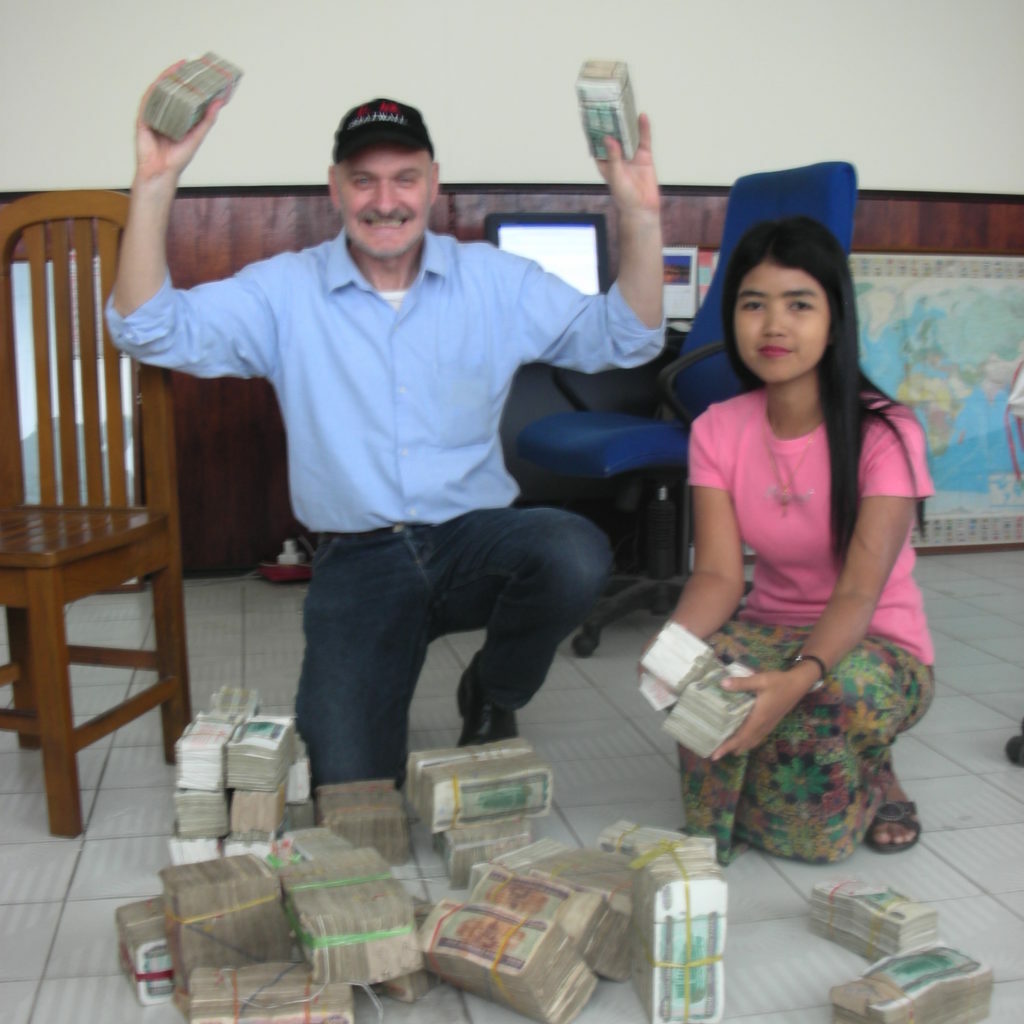
The purchase of ‘Export Duya’ cigarettes, which had cult status then, was very popular. To this day, it’s a mystery to me why those carried the word ‘export’ in their name – at least, I’ve never seen them outside of Burma. The declared goal of the operation was to be able to enter legally acquired kyat in your ‘Money Declaration Form’. This would credibly demonstrate the lawful acquisition of the goods I intended to export.
I still remember my first ‘big deal’ in 1978. Needing a fair amount of money to purchase goods, I bought two laundry baskets full of Export Duya from the Diplomatic Store. I exchanged my dollars at the official rate at the state bank counter inside the building and dutifully paid for my treasures. Workers carried the goods outside, where my black market buddies loaded them into an ancient VW camper van. We drove around downtown until our business was set, and I was holding – now legal! – kyats in my hand and said goodbye. Easy!
It got complicated, however, if the Dip Store didn’t have enough cigarettes in stock. Then, it was time to switch to other goods. Unfortunately, those didn’t fetch the same price as ‘Export Duya’. There was relatively good money to be made with vitamin tablets.
I always wondered why they were so popular in a country where fruits were sold at dumping prices on every corner. My Burmese friends explained that the vitamins in those tablets were much better than those in fruits and therefore more expensive – well, you live and learn…
However, when neither Export Duya nor vitamin tablets were in stock, things got complicated. On one occasion, Victor had told me that the Diplomatic Store had unlimited amounts of cigarettes – no such luck! So I went outside (money changers were not allowed in the hallowed premises of the dip store) and asked him what I should do now. He sent me to the side wing, separated from the street by shutters. And where there was no air conditioning. I was supposed to buy vitamin tablets there. But again – no luck! Victor got desperate, and so did I. He was hanging outside the trellis like a monkey, gesturing wildly back and forth and calling out the names of the goods I was supposed to buy. Butter? I beg your pardon? Yes! Yes! he gestured, raising his thumb. Okay, I bought all the canned butter I could get my hands on, but it wasn’t enough to cover my financial needs. I ended up acquiring two bicycles and crates of batteries, which I traded at a pretty lousy rate – but still better than the official one!